1817 – Mississippi became the 20th state to join the United States.
1864 – Union General William T. Sherman completed his March to the Sea when he arrived in front of Savannah, Georgia. He discovered the city was fortified and defended by some 10,000 Confederates under the command of General William Hardee. The Rebels flooded the rice fields around Savannah, so only a few narrow causeways provided access to the city. Sherman’s army was running low on supplies and he had not made contact with supply ships off the coast. His army had been completely cut off from the North, and only the reports of destruction provided any evidence of its whereabouts.
Sherman directed General Oliver O. Howard to the coast to locate friendly ships. Howard dispatched Captain William Duncan and two comrades to contact the Union fleet, but nothing was heard of the trio for several days. Duncan located a Union gunboat that carried him to Hilton Head, South Carolina. Supply ships were sent to Savannah, and Duncan continued on to Washington, D.C., to deliver news of the successful March to the Sea to Secretary of War Edwin Stanton.
For ten days, Hardee held out as Sherman prepared for an attack. Realizing the futility of the situation, Hardee fled the city on December 20 and slipped northward to fight another day.
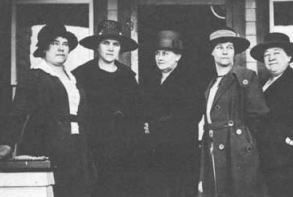
1869 – Motivated perhaps more by interest in free publicity than a commitment to gender equality, Wyoming territorial legislators passed a bill that was signed into law granting women the right to vote. Western states led the nation in approving women’s suffrage, but some of them had rather unsavory motives. Though some men recognized the important role women played in frontier settlement, others voted for women’s suffrage only to bolster the strength of conservative voting blocks.
In Wyoming, some men were also motivated by sheer loneliness – in 1869, the territory had over 6,000 adult males and only 1,000 females, and area men hoped women would be more likely to settle in the rugged and isolated country if they were granted the right to vote.
1896 – Intercollegiate basketball was played for the first time as Wesleyan University defeated Yale, 4-3, in New Haven, Connecticut.
1901 – The first Nobel Peace Prize was awarded jointly to Henry Dunant (or his role in founding the International Red Cross Committee) and Frédéric Passy (for being the main organizer of the first Universal Peace Congress).
1906 – U.S. President Theodore Roosevelt won the Nobel Peace Prize for his role in the mediation of the Russo-Japanese War, becoming the first American to win a Nobel Prize.

1935 – King Edward VIII signed the instruments of abdication, choosing to give up the British throne so that he might marry Wallis Simpson, an American who had divorced her first husband and was seeking a divorce from her second. The next night, Edward, now reverted to the title of a prince, explained his decision to abdicate in a worldwide radio broadcast. He famously said, “I have found it impossible to carry the heavy burden of responsibility and to discharge my duties as king as I would wish to do without the help and support of the woman I love.”
His brother, Prince Albert, Duke of York, succeeded to the throne as George VI. George VI’s elder daughter, Princess Elizabeth, became first in the line of succession.

1946 – Baseball Hall of Fame pitcher Walter “Big Train” Johnson (the all-time career leader in shutouts with 110) died of a brain tumor at the age of 59.
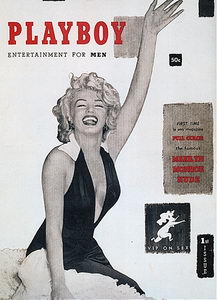
1953 – With an investment of $7,600, Hugh Hefner published the first Playboy magazine. There was no date printed on the first issue – now a collector’s item. The reason for no date, according to Hefner, was he doubted anyone would expect a second issue to be printed.
1964 – Dr. Martin Luther King, Jr. won the Nobel Peace Prize for being “first person in the Western world to have shown us that a struggle can be waged without violence.”
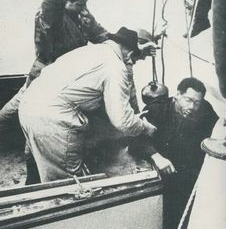
1967 – A plane crash in Madison, Wisconsin killed soul singer Otis Redding and four members of his backing band, The Bar-Kays. The plane crashed into Lake Monona, several miles from the Madison airport. The following day, the lake was dragged and the bodies of the victims were recovered. A storm in Madison that day was a factor in the crash but the exact cause was never determined. Along with the pilot, four members of The Bar-Kays – (Jimmy King, Ronnie Caldwell, Phalon Jones and Carl Cunningham) – also died in the crash. Four months after his death at the age of 26, Redding’s (Sittin’ On The) Dock Of The Bay, the last song he ever recorded (three days before the crash), reached the top spot on the music charts.
1971 – William H. Rehnquist was confirmed by the Senate, 68-26, as a U.S. Supreme Court Justice.
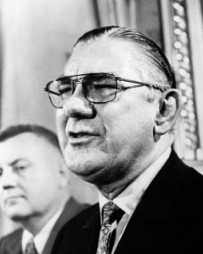
1974 – Representative Wilbur D. Mills (D-Arkansas), resigned as chairman of the Ways and Means Committee in the aftermath of the first truly public sex scandal in American politics.
On October 7, Mills had been stopped by Washington park police while driving at night (2 a.m.) with his lights off. The 65-year-old congressman was visibly intoxicated, his face was scratched, and his companion, 38-year-old Annabell Battistella, had bruised eyes. Battistella then proceeded to jump into the Tidal Basin near the Jefferson Memorial and had to be pulled out by the police. She was later identified as a popular stripper who went by the names “Fanne Foxe” and the “Argentine Firecracker.”
Mills denied all the allegations but later admitted he had joined a party Battistella was present at after “a few refreshments.” Mills was subsequently reelected to Congress, but because of the escalating scandal, he was forced to retire his chairmanship and later announced that he would not run for reelection.
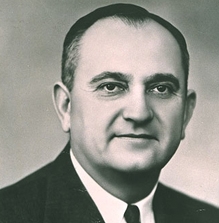
1977 – Basketball Hall of Fame coach Adolph Rupp (one of the most successful coaches in the history of college basketball) died of cancer at the age of 76.

1980 – Rep. John W. Jenrette, D-S.C., resigned to avoid being expelled from the House following his conviction on charges related to the FBI’s Abscam investigation. Jenrette was sentenced to two years in prison, of which he served 13 months.
Jenrette is also famous for another action during his days as a Congressman. He allegedly had sex with his then-wife, Rita, behind a pillar on the steps of the Capitol Building during a break in a late night session of Congress. The musical-satire group The Capitol Steps took their name from this escapade.
1991 – The U.S. Supreme Court struck down New York’s Son of Sam Law that forced criminals’ profits for selling their stories to be seized and given to their victims.
1994 – Yasser Arafat, Shimon Peres and Yitzhak Rabin won the Nobel Peace Prize.

1999 – The Green Mile, starring Tom Hanks and Michael Clarke Duncan, premiered in U.S. theaters. Duncan, who played the role of John Coffey, a giant black man convicted of raping and killing two young white girls, received an Academy Award nomination as Best Supporting Actor.

1999 – The Cider House Rules, starring Tobey Maguire and Michael Caine, premiered. Caine would win the Academy Award for Best Supporting Actor.

2005 – Comedian Richard Pryor died of heart failure at the age of 65. The comic legend had battled multiple sclerosis since 1986.
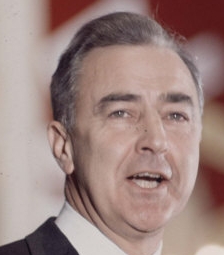
2005 – Eugene McCarthy died at the age of 89. The former Senator from Minnesota burst onto the national political stage in1968 when he ran for the Democratic presidential nomination. His showing in the New Hampshire primary prompted President Lyndon Johnson to drop out of the race.

2007 – NFL quarterback Michael Vick was sentenced to 23 months in prison for bankrolling a dog fighting operation and killing dogs that underperformed.
U.S. District Judge Henry E. Hudson noted that despite Vick’s claim to have accepted responsibility for his actions, his failure to cooperate fully with federal officials, coupled with a failed drug test and a failed polygraph, indicated that he had not taken full responsibility for “promoting, funding and facilitating this cruel and inhumane sporting activity.”
2007 – Former Vice President Al Gore accepted the Nobel Peace Prize with a call for humanity to rise up against a looming climate crisis.
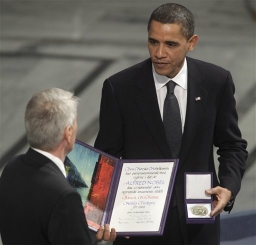
2009 – President Barack Obama won the Nobel Peace Prize “for his extraordinary efforts to strengthen international diplomacy and cooperation between peoples.”
Compiled by Ray Lemire ©2014 RayLemire.com. All Rights Reserved.
You may not, under any circumstances, reproduce, record, publish, republish, post, transmit, publicly display, publicly exhibit or distribute any articles or photographs on RayLemire.com without obtaining the express written consent of the Operator.